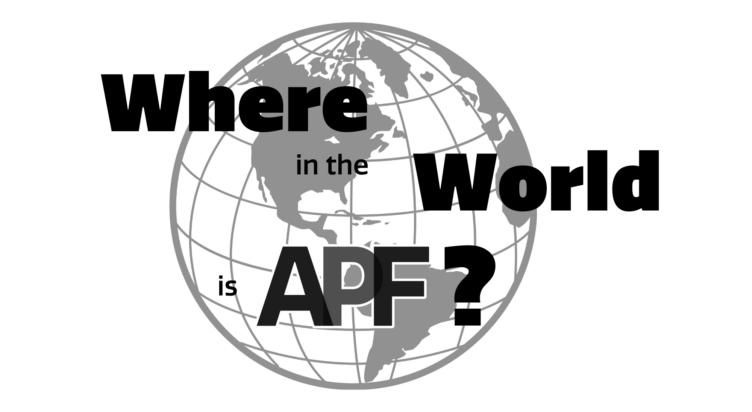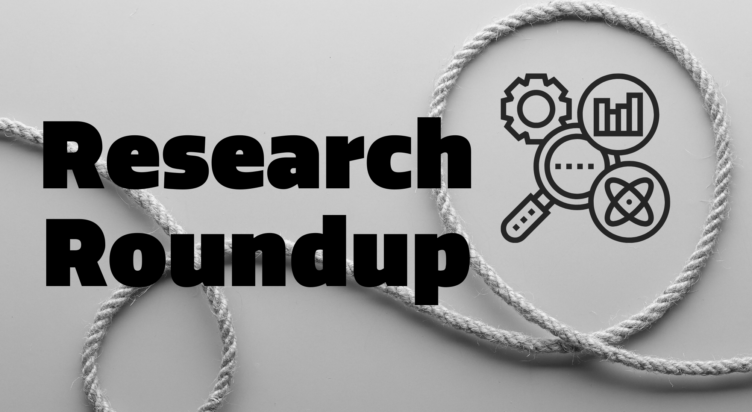Publication Spotlight: Dr. Joel Wong

At APF, our mission is to invest in innovative research and applications that prioritize people and their wellbeing. We believe that every research project we fund has the potential to advance the field of psychology and meaningfully impact peoples’ lives.
We’re proud to showcase the success of APF-funded research through our Publication Spotlight. The journey from initial research to publication is a major achievement, representing years of hard work and dedication. These publications mark significant milestones in our recipients’ careers and highlight the impact of APF’s support.
Each publication that has been supported by APF represents a step forward in our mission. From receiving initial APF funding to sharing these important findings with the world, these projects will shape future research, guide best practices and inform policy, allowing psychology to broaden its impact on the world.

Dr. Joel Wong
2016 Visionary Grant
“A Sexual Assault Preventative Intervention for Male College Students: A Randomized Controlled Trial Based on the Self Persuasion Paradigm”
Article
“Self-Persuasion: An Experimental Evaluation of a Sexual Aggression Preventive Intervention for U.S. College Men”
Journal
Journal of Interpersonal Violence
Abstract
Grounded in the self-persuasion paradigm (an indirect persuasion approach, which places people in situations that motivate them to change their behavior), this study evaluated a brief, online intervention to reduce sexual aggression perpetration and increase prosocial bystander behaviors among heterosexual male college students (N = 241) in the United States. Students were randomly assigned to three conditions: (a) a self persuasion intervention, (b) a social norms control condition, and (c) a control condition focusing on sense of belongingness. The self-persuasion intervention integrated three social psychological theoretical perspectives on attitudinal and behavioral change—cognitive dissonance (e.g., creating a personalized video message for incoming male college freshmen to explain the importance of consent in sexual contact), self-affirmation (e.g., reflecting on one’s core values and how they are congruent with sexual consent), and personal relevance (e.g., writing about personally relevant reasons to always seek consent when having sexual contact). Participants in the self persuasion condition reported greater prosocial bystander behaviors (e.g., intervening in situations to prevent sexual aggression) 6 months after the intervention as compared with those in the other two conditions; however, there were no significant difference in the rate of self-reported sexual aggression perpetration across conditions. The positive effect of the self persuasion intervention on prosocial bystander behaviors was mediated by reduced self-perceived likelihood to commit sexual aggression and moderated by in-group solidarity with other college students. That is, the intervention had the most positive effect on prosocial bystander behaviors among participants with a lower sense of in-group solidarity. These findings are discussed in light of the promise of self-persuasion for future sexual aggression prevention work.
Wong, Y. J., McDermott, R. C., Zounlome, N. O. O., Klann, E. M., & Peterson, Z. D. (2020). Self-Persuasion: An Experimental Evaluation of a Sexual Aggression Preventive Intervention for U.S. College Men. Journal of Interpersonal Violence, 37(5-6), 2037-2061. https://doi.org/10.1177/0886260520936369
Has your APF-funded research been published? Let us know here!
Want to contribute to projects like this and create impact with psychology? Donate to APF today!
Topics: Publication Spotlight Violence Prevention
Discover More

Where in the World is APF with Dr. Nicole Short
Welcome to “Where in the World is APF”, our recipient highlight series where we catch up with our grant, scholarship, and award recipients all over …

APF Research Roundup: Survivor Support, Healing, and Prevention Edition
Sexual Assault Awareness Month brings attention to the widespread impact of sexual violence and the urgent need for research and interventions in prevention, support, and healing. At APF, we are dedicated to funding psychological research that addresses the mental health impacts of sexual assault and its far-reaching ripple effects. Through supporting evidence-based prevention strategies, trauma-informed interventions, and survivor-centered care, we aim to promote healing, resilience, and improved well-being of individuals and communities affected by sexual violence.

World Health Day: The Mind-Body-Health Connection
From the Desk of Dr. Quist Ryder is a space for APF’s CEO to share insights and observations on APF initiatives, the state of psychology, …
